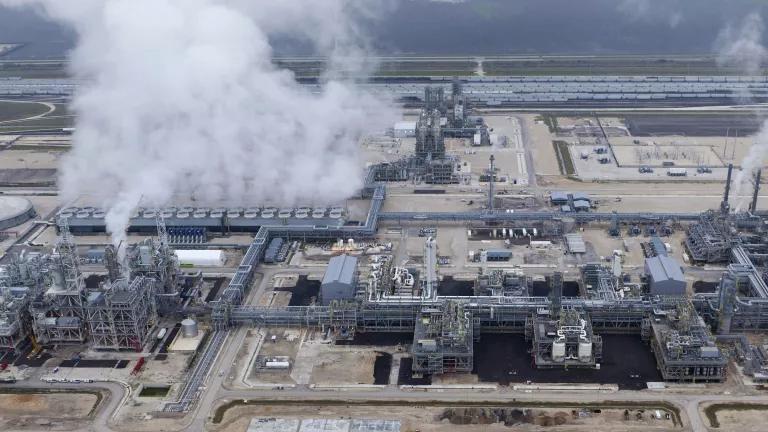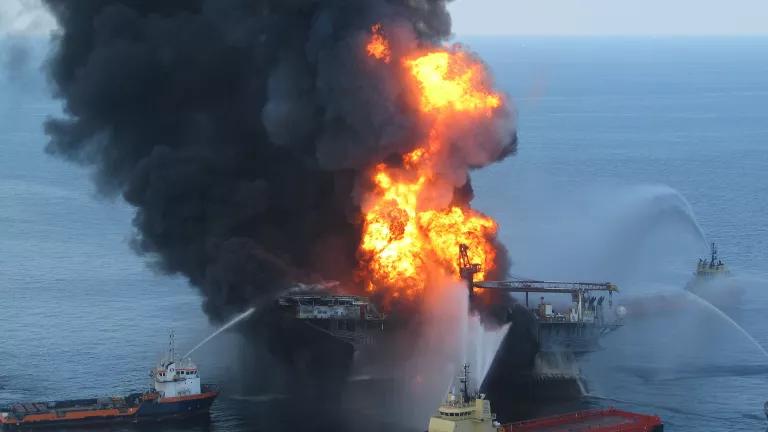
A house-sized dump truck hauls dirt and rock at the Black Thunder coal mine in northeast Wyoming's Powder River Basin near Wright, Wyoming.
Great Falls, MT. March 23, 2018. Federal judge tells government to rethink leasing of coal in West's Powder River Basin. Stretching across Wyoming and Montana, the Powder River Basin holds enough coal to keep America’s current coal power plants going for over 100 years. It supplies about 40% of the nation’s coal and accounts for 13% of all U.S. greenhouse gas emissions. In September 2015, the BLM opened all this coal to leasing. Federal District Judge Brian Morris says not so fast.
The court ruled that the Bureau of Land Management (BLM) violated the National Environmental Policy Act (NEPA) by failing to consider any alternative in its land use plans that would decrease the amount of coal available for leasing. BLM also failed to analyze the impacts burning the coal, as well as oil and gas, from the public lands would have as a result of climate change to which it would contribute.
BLM Failed to Consider Future Needs
Our public lands are some of our most precious assets. From the San Gabriel Mountains outside Los Angeles to Great Smoky Mountains, they are there for each one of us to enjoy. We trust the government to manage them in our best interest. Such trust, however, is not unbounded. Congress has authorized more uses on BLM lands than in national parks, but the Federal Land Policy and Management Act (FLPMA) nevertheless recognizes all the public’s lands as assets that future generations have as much right to enjoy as the present one. BLM must manage the public lands so they are “utilized in the combination that will best meet the present and future needs of the American people.” 43 U.S.C. § 1702(c).
Addressing future needs requires looking at indirect and downstream effects of a proposed action. Judge Morris found that BLM had not. BLM estimated that it would lease over 10 billion tons of coal over the next 20 years. The agency estimated the emissions that would be associated with burning this coal, but did not address the impacts such emissions might have. The judge held that BLM could not wait until it issued leases to specific coal companies. BLM had to analyze and consider the impacts of burning the coal at the time it was deciding how much of the coal to open to leasing.
The judge held that the same analysis was required of the impacts of burning oil and gas opened to leasing.
BLM Failed to Consider Alternatives
To help ensure informed decision-making, NEPA requires an agency to look at reasonable alternatives to a proposed action. Here, every alternative opened the same amount of coal to leasing—ALL of it. BLM relied upon previous coal screening which had failed to consider climate change at all in the decision about how much coal to lease. Judge Morris found that our changing times required new analysis. BLM could not stick its head in the sand. Managing in the public interest in today’s carbon-constrained world requires taking into account the consequences of burning the federal fossil fuels we choose to take out of the ground.
BLM Failed to Use Best Science
NEPA requires that “accurate scientific analysis” inform agency decision-making. Here, BLM failed to use the best science available to calculate the impact of the methane emissions. Methane is a much more potent gas than carbon dioxide. BLM looked only at the long-term effects of methane emissions over a 100-year time horizon. The agency failed to explain why it did not use an available 20-year time horizon to assess short-term impacts.
What Happens Next:
- The judge declared the government’s decision unlawful. He must now decide the appropriate remedy.
- NRDC asked the court to block any leasing or development of coal, oil or gas until BLM completes the informed decision-making the law requires. The decision involves over 15 million acres of public land and minerals managed by two of BLM’s offices—the Buffalo office in Wyoming and the Miles City office in Montana.
- The judge will consider this request and other options over the summer. He has ordered the parties to meet and confer in good faith to attempt to reach agreement as to remedies. In the event no agreement is reached, the parties shall file briefs addressing the appropriate remedy for BLM’s unlawful action by May 21.



